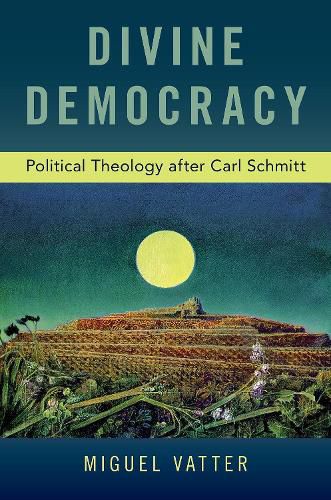Readings Newsletter
Become a Readings Member to make your shopping experience even easier.
Sign in or sign up for free!
You’re not far away from qualifying for FREE standard shipping within Australia
You’ve qualified for FREE standard shipping within Australia
The cart is loading…






How secular are the political and legal concepts that underpin liberal democracy? Carl Schmitt first coined the term political theology to show the dependency of modern western jurisprudence and political science on Christian theological discourse, and in so doing criticized the claim to religious neutrality of liberal institutions. In this book, Miguel Vatter reconstructs how and why the discourse of political theology was adopted and repurposed by anti-Schmittian thinkers, from Eric Voegelin through Jacques Maritain and Ernst Kantorowicz to Jurgen Habermas, to bolster the legitimacy of liberal democratic government. The book traces the way in which crucial political concepts for liberal democracy–including sovereignty, representation, government, constitutionalism, human rights, and public reason–are transformed when they become part of a discourse on political theology. Vatter’s aim is to provide an intellectual history of political theology in the 20th century. His study reveals the overdetermined role that religion plays in contemporary democratic political and legal theory as an ultimate source of legitimacy for government and as wellspring for revolutionary aspirations.
$9.00 standard shipping within Australia
FREE standard shipping within Australia for orders over $100.00
Express & International shipping calculated at checkout
How secular are the political and legal concepts that underpin liberal democracy? Carl Schmitt first coined the term political theology to show the dependency of modern western jurisprudence and political science on Christian theological discourse, and in so doing criticized the claim to religious neutrality of liberal institutions. In this book, Miguel Vatter reconstructs how and why the discourse of political theology was adopted and repurposed by anti-Schmittian thinkers, from Eric Voegelin through Jacques Maritain and Ernst Kantorowicz to Jurgen Habermas, to bolster the legitimacy of liberal democratic government. The book traces the way in which crucial political concepts for liberal democracy–including sovereignty, representation, government, constitutionalism, human rights, and public reason–are transformed when they become part of a discourse on political theology. Vatter’s aim is to provide an intellectual history of political theology in the 20th century. His study reveals the overdetermined role that religion plays in contemporary democratic political and legal theory as an ultimate source of legitimacy for government and as wellspring for revolutionary aspirations.